|
Brought to you by Dairy's Professional Development Organization®
|
|
|
"Few things can help an individual more than to place responsibility on him,
and to let him know you trust him". --- Booker T. Washington
|
Opportunities to learn...
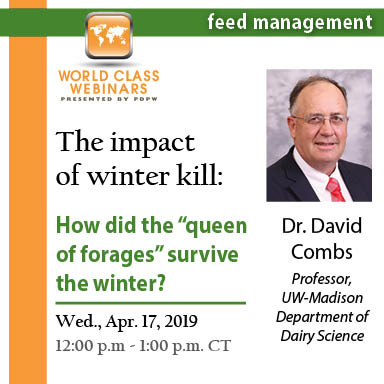
HOW WILL WINTER WEATHER AFFECT ALFALFA FIELDS and how can you make adjustments to what you feed your cows? Join Dr. David Combs, professor of Dairy Science at UW-Madison, for the next PDPW World Class Webinar to learn about how winter kill will impact 2019's alfalfa crop. Dr. Combs will talk about feeding options to compensate for damaged stands. Listen to the webinar live at noon (CT) on Wed., April 17, or listen to the recording at your leisure. Click
here
or call 800-947-7379 for more details and to register.
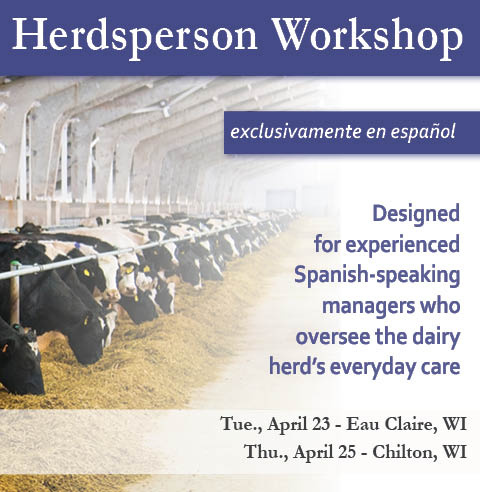
HERDSPERSON WORKSHOP FOR SPANISH SPEAKERS is set for Tues., April 23 in Eau Claire, and will repeat Thurs., April 25 in Chilton. This session is designed for Spanish-speaking dairy farm managers who oversee the dairy herd and will cover milk quality, lameness and mobility and reproduction. Presenters include Carolina Pinzón, MSc, Dr. Gláucio Lopes, and Dr. Zelmar Rodriguez. A farm tour, lunch and networking opportunity is available each day for those providing transportation for employees to the workshop. Register and learn more here or call 800-947-7379.
 KEEP CONNECTIONS GOING WITH THE PDPW VIRTUAL TRADE SHOW! Did you miss connecting with someone at the PDPW Business Conference Hall of Ideas? Or do you have a follow-up question for a vendor you spoke with? Check out the PDPW Virtual Trade Show page for information and contact details and other resources from companies who exhibited at the conference. It's your go-to site for Business Conference access long after the event is over. KEEP CONNECTIONS GOING WITH THE PDPW VIRTUAL TRADE SHOW! Did you miss connecting with someone at the PDPW Business Conference Hall of Ideas? Or do you have a follow-up question for a vendor you spoke with? Check out the PDPW Virtual Trade Show page for information and contact details and other resources from companies who exhibited at the conference. It's your go-to site for Business Conference access long after the event is over.

EXPLORE GERMANY AND HOLLAND WITH PDPW The tour will include stops at some of the most recognized landmarks in Berlin, Münster, Rothenburg, and Munich in Germany, as well as Amsterdam and Rotterdam in Holland. Visit Oktoberfest, Anne Frank's House, Neuschwanstein Castle, take a canal cruise, enjoy farm tours, CLAAS factory, and Lely. We will depart from O'Hare International airport on Sept. 14 and return Sept. 27. Learn more here . Reserve your spot today!
TAKE CREDIT FOR THE PROGRAMS YOU'VE ATTENDED.
Find, track and report your Continuing Education (CEs). Get more details at
DairyAdvance.org
.
|
For your dairy...
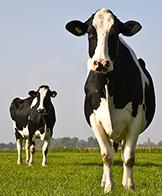
UNDERSTANDING THE IMPACT OF ANTIBIOTIC RESIDUE IN WASTE MILK
on dairy calves who drink that milk was the focus of a study recently published in the Journal of Dairy Science. Twenty calves were studied in two treatment groups, with one group receiving milk replacer and the other group receiving milk replacer with residue levels of four antibiotics. Intake, fecal consistency and a variety of growth measurements were tracked. The study found the antibiotic residues had no significant effects on the growth of calves. The residues increased papillae length in the rumen cranial ventral sac and had limited effects on rumen bacteria. Read the full study
here
.
DOMINANT COWS AT THE WATER TROUGH CAN BE IDENTIFIED using an electronic drinking system, according to research published in the Journal of Dairy Science. Researchers used an electronic surveillance system in conjunction with an electronic drinking system correlated with ear transponders to determine the number of times dominant cows physically pushed less assertive cows away from water sources. The study found these incidents were trackable which would allow farmers to more effectively manage water consumption and add more troughs or reposition them. Read more here.

ASSESS ALFALFA FOR WINTER INJURY
to determine yield potential of stands for the 2019 season. An article from The Ohio State University extension shares steps to conduct stem counts and dig plant roots to assess how well plants fared during the difficult winter season, and how well they will hold up to stresses in the coming growing season. Assessment can begin as soon as plants green up and produce 2 to 4 inches of growth. Learn more in the full article
here
.
|
 GRAB-N-GO BREAKFAST CARTS PROVIDE BREAKFAST options for about 70,000 students and serve an estimated 5.8 million pounds of milk annually as part of the GENYOUth program founded by dairy farmers through the National Dairy Council and the National Football League, in collaboration with the USDA. The program, along with financial contributions from private businesses, will have supported installation of carts in 200 schools in the 2017-18 and 2018-19 school years. The carts feature a "Fuel Up to Play 60" logo and each breakfast includes a serving of milk, fruit, whole grain and a meat-alternative option, such as smoothies, yogurt parfaits or cheese. Learn more here. GRAB-N-GO BREAKFAST CARTS PROVIDE BREAKFAST options for about 70,000 students and serve an estimated 5.8 million pounds of milk annually as part of the GENYOUth program founded by dairy farmers through the National Dairy Council and the National Football League, in collaboration with the USDA. The program, along with financial contributions from private businesses, will have supported installation of carts in 200 schools in the 2017-18 and 2018-19 school years. The carts feature a "Fuel Up to Play 60" logo and each breakfast includes a serving of milk, fruit, whole grain and a meat-alternative option, such as smoothies, yogurt parfaits or cheese. Learn more here.
TOTAL GLOBAL DAIRY GHG EMISSIONS ROSE, BUT
when measured on a per-gallon basis, greenhouse gas emissions actually decreased thanks to more milk per cow and greater feed efficiency. A report from the Food and Agriculture Organization (FAO) of the United Nations estimates total dairy greenhouse gas emissions increased 18% from 2005 to 2015 - and without productivity gains the increase would have been much higher - about 38%. While North American dairy cattle have the highest greenhouse gas emissions per cow, high levels of milk output mean greenhouse gas emissions per kilogram of milk is the lowest in the world. Read the MILK article
here
and access the full report
here
.
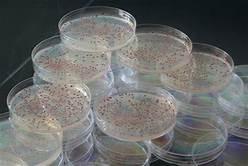 WHAT IMPACT WILL CELLULAR AGRICULTURE have on livestock, dairy and poultry industries? A recent article in Choices magazine took an economic approach to addressing this question. The report considered environmental, economic and consumer-perception impacts of cellular products from both tissue-based engineering and protein-based engineering. The market implications of these products are uncertain at this point and will vary across sectors. For example, in dairy, "the introduction of a cellular-agriculture milk analog may reduce the demand for skim milk solids but not for milk fats and butter, because current technologies synthesize the milk protein but use plant-based fats to make milk analogs." Read the full article here. WHAT IMPACT WILL CELLULAR AGRICULTURE have on livestock, dairy and poultry industries? A recent article in Choices magazine took an economic approach to addressing this question. The report considered environmental, economic and consumer-perception impacts of cellular products from both tissue-based engineering and protein-based engineering. The market implications of these products are uncertain at this point and will vary across sectors. For example, in dairy, "the introduction of a cellular-agriculture milk analog may reduce the demand for skim milk solids but not for milk fats and butter, because current technologies synthesize the milk protein but use plant-based fats to make milk analogs." Read the full article here.
|
For your business mind...
TAILORING INCOME OVER FEED COST (IOFC) TO YOUR DAIRY
is a powerful metric for evaluating current position and determining how decisions will impact cash flow. An article from Penn State University extension shared that the concept of IOFC has recently developed into a farm-specific tool rather than the generic benchmark it once was. Authors recommend farms calculate breakeven IOFC for their operation, then monitor their IOFC monthly. If there's a deficit, review potential bottlenecks and opportunities for improvement. Click
here
to read the full article.
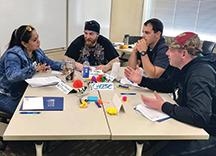 DODGING POTENTIAL PITFALLS IN EMPLOYEE MANAGEMENT
requires a focused effort from dairy farm managers and owners. Labor costs are typically one of the highest expense categories on dairies and a consistent workforce is critical to daily operations, so risk managiement of key areas is important to avoid portential complaints. An article from Iowa State University Extension highlights five potential problem areas and provides resources for each: DODGING POTENTIAL PITFALLS IN EMPLOYEE MANAGEMENT
requires a focused effort from dairy farm managers and owners. Labor costs are typically one of the highest expense categories on dairies and a consistent workforce is critical to daily operations, so risk managiement of key areas is important to avoid portential complaints. An article from Iowa State University Extension highlights five potential problem areas and provides resources for each:
- Worker misclassification as "independent contractors" instead of "employees"
- Understanding the provisions of Fair Labor Standards Act (FLSA) and farm/non-farm roles
- Wages and work-hour claims, and ensuring employees are paid for all work time
- Up-to-date, role-specific employee handbook or policy documents and understanding the employment-at-will principle
- Employment verification and the USCIS I-9 form
Read the full article and access resources
here
.
PROVIDING AND ACCEPTING CONSTRUCTIVE FEEDBACK
are both important skills for successful managers and leaders. Taking time to listen to employee feedback to improve workplace and management practices can lead to significant improvements, but even the most constructive criticism can be difficult to hear. Here are some tips for making the most of feedback:

- Pause before responding
- Avoid getting defensive; don't take feedback personally
- Reflect thoughtfully; ask clarifying questions
- Develop a plan to improve and share results
Read more about each tip in the full articles
here
and
here
.
|
|
A BIG Thank You...
TO THE PDPW SPONSORS who are supporting your professional development organization! As a producer-led group, we extend a heart-felt "Thank You!" to those that stand alongside our nation's dairy farmers.
Their support allows PDPW to execute best-in-class producer training and has enabled us to become the go-to resource for unified outreach initiatives. If you or a company you know is interested in participating as a sponsor, please contact us at abonomie@pdpw.org or call 800-947-7379.
See the full list of generous sponsors
here.
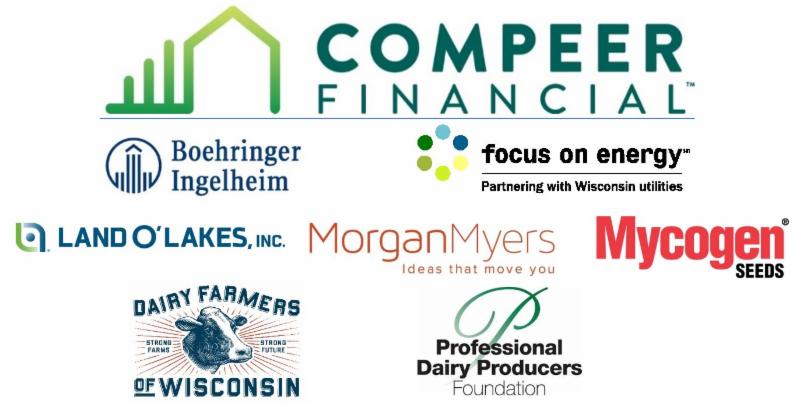
|
|
PDPW Education Calendar
| April 17 |
World Class Webinar - What's The Impact of Winter Kill: On Your Computer |
| April 23, 25 |
Herdsperson Workshop - Taught Exclusively in Spanish: Eau Claire, Chilton, Wis. |
| May 21-23 |
Agricultural Professional Partnerships® (APPs) Training: Madison, Wis.
|
|
August 13-14
|
Dairy Managers Institute™: Wisconsin Dells, Wis.
|
| September 14-27 |
PDPW International Dairy Tour: Germany & Holland
|
| December 10 |
Dairy Managers Institute™: Wisconsin Dells, Wis.
|
| January 14-16, 2020 |
Managers Academy: Location TBD |
| March 17-18, 2020 |
Cornerstone Dairy Academy: Alliant Energy Center, Madison, Wis. |
| March 18-19, 2020 |
PDPW 2020 Business Conference: Alliant Energy Center, Madison, Wis. |
STAY CONNECTED
800-947-7379
|
|
|
|
|